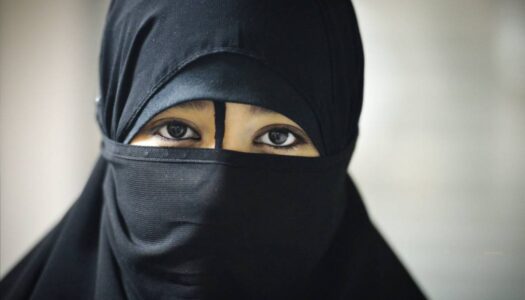
European female Islamic State supporters feel like strangers in their own country
They call themselves the «mothers of holy war» and have profile pictures showing women in niqabs, the ISIS flag, paradise-like landscapes and quotes by extreme Islamists.
Young European women discuss online how they can live according to the demands of the terrorist organization ISIS.
“They’re very concerned with things that may not be that important for most people. Can you use coloured shoelaces? No, they have to be black. Can you pluck your eyebrows? No, you can’t,” says linguist Anne Birgitta Nilsen, a professor at OsloMet.
Nilsen has studied about 250 Facebook profiles of women who expressed their support for ISIS between 2014 and 2017.
The young sympathizers are motivated by a literal interpretation of religion that regulates the minutiae of their lives. Maybe it feels safe and comfortable not to have to make the decisions that we have to make every day. And the strict guidelines create a community where everyone agrees on how things are done.
The ISIS supporters’ lists of Facebook friends are limited, which may indicate that the profiles were created to find others of similar persuasion. They do not accept friends of the opposite sex.
Based on their language choices, the women probably lived in the Netherlands, Belgium, Germany and the United Kingdom.
One woman said hello from Antwerp and asked if anyone there wanted to meet up.
None of the women appeared to be in Norway.
“There are very few such Norwegian profiles, and it would be difficult to anonymise them,” Nilsen says.
The women are well received by their fellow sisters.
“If some girls mentioned things being awkward at home, someone would quickly help them find another place to live,” Nilsen says.
There can be many reasons why women seek out this community.
Other researchers have pointed to various types of people who are drawn to extremism, from the socially maladapted to excitement-seeking and politically religious types.
Female ISIS sympathizers say they feel persecuted because of their faith. They believe everyone else, even other Muslims who do not follow their rules, are infidels.
“They believe that only orthodox believers have understood how to live their lives. This probably makes them feel very special,” says Nilsen.
But she believes it can also be dangerous.
“I think this belief can drive young people further into extremism. Being urged to only be with people who hold the same views can lead to isolation,” Nilsen says.
Source: Science Norway





